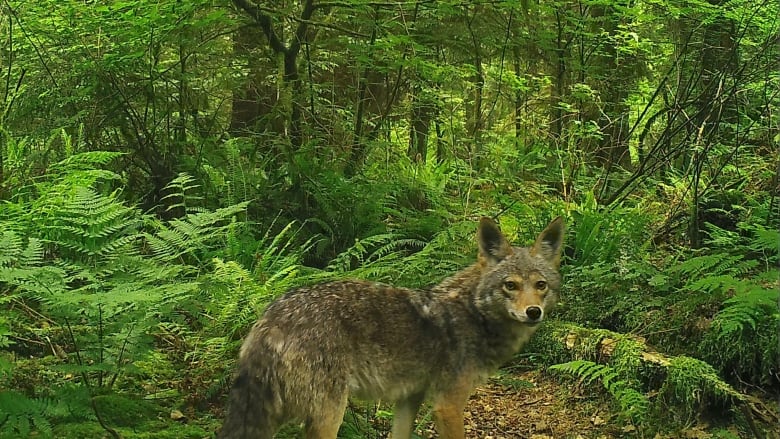Late night coyote attack reported in Vancouver's Stanley Park
Two people were bitten by a coyote at 1:30 a.m. Monday

Another coyote attack in Vancouver's Stanley Park has been reported to the B.C.Conservation Officer Service.
The service says that at 1:30 a.m. PT Monday, a woman and her friend were having a picnicin the south end of the park when a coyote approached and bit both people on the leg.
The conservation officer service says that because the report of the attack was delayed, they were unable to follow up immediately.
Since December 2020, there have been at least 34 coyote attacks in Stanley Park.
Officials are "strongly"urging the public to stay out of the park, and for those that choose to go there, they advise caution. The conservation officer service says there is a high risk of encountering an aggressive coyote.
They said coyotes tend to be more active during the dawn and dusk hours.
Human behaviour not helping, prof says
Kristen Walker,assistant professor in the Applied Animal Biology Program at UBC, says humans arein large part to blame for the park attacks.
She told CBC's The Early Edition onWednesday that despite signs warning where not to walk or picnic in the park to avoid the animals, she often sees people hanging outin those danger zones some with small children.
Walker also said people have been vandalizing the warning signs,as well as cameras set up on the trails that are critical for researchers, like herself, who are trying to determine what has triggered so many violent encounters.
People also continue to leave garbage out and actually feed the coyotes, which Walker said is a recipe for disaster.
"If somebody has been feeding them in the park and they're used to having that kind of hand food and they're not getting it at that time, that's when you can see that type of aggression happening," she warned.
Officials are asking anyone who encounters an aggressive coyote to report it to the RAPP line at1-877-952-7277.
With files from The Early Edition












_(720p).jpg)


 OFFICIAL HD MUSIC VIDEO.jpg)
.jpg)



























































































